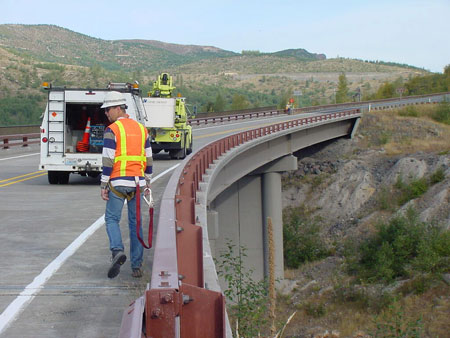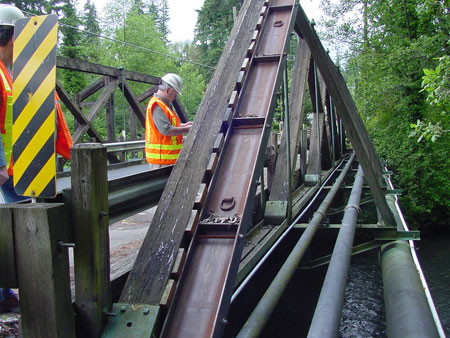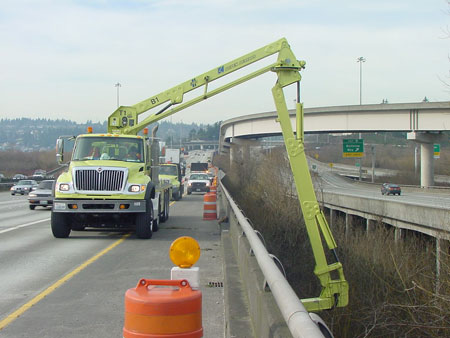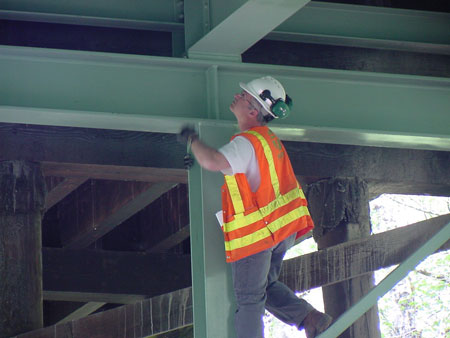U.S. Department of Transportation
Federal Highway Administration
1200 New Jersey Avenue, SE
Washington, DC 20590
202-366-4000
Focus
| Accelerating Infrastructure Innovations |
Publication Number: FHWA-HRT-12-011
Date: March 2012
Printable Version (.pdf, 1.1 mb)
Training on "Safety Inspection of In-Service Bridges" (Course No. FHWA-NHI-130055) is available through a recently updated course offered by the Federal Highway Administration's (FHWA) National Highway Institute (NHI).
Based on FHWA's Bridge Inspector's Reference Manual, the course is designed to fulfill the requirements of the National Bridge Inspection Standards for a comprehensive training course.
Successful completion of the course provides participants with the skills to evaluate a variety of bridges and determine the critical areas for inspection, including fatigue-prone details and common points of deterioration and distress. Updates to the 10-day course include an increase in bridge inspection field time from one brief field trip to two longer field trips, new instruction on identifying critical findings and responding to those findings, and coverage of the new American Association of State Highway and Transportation Officials element level condition assessments.
Participants must have completed one of three prerequisite courses with a passing score of 70 percent or better within the last 2 years: Engineering Concepts for Bridge Inspectors (Course No. FHWA-NHI-130054), Introduction to Safety Inspection of In-Service Bridges (Course No. FHWA-NHI-130101), or Prerequisite Assessment for Safety Inspection of In-Service Bridges (Course No. FHWA-NHI-130101A).
Attendees will learn the duties and responsibilities of a bridge inspector, including how to identify, evaluate, and document the various bridge components and deficiencies that can exist. Also covered are design characteristics and field inspection methods for common concrete, steel, and timber structures, as well as nondestructive evaluation methods for basic bridge materials. Identification and evaluation of culvert and waterway deficiencies is another primary topic.
The course provides instruction on inspection equipment needs for various types of bridges and site conditions. Participants will also discuss personal and public safety issues associated with bridge inspections. While this course does not provide indepth coverage of fracture-critical, underwater, or complex bridge inspections, NHI offers specialized training on fracture-critical inspection (Course No. FHWA-NHI-130078) and underwater safety inspection (Course No. FHWA-NHI-130091).
The Safety Inspection course is designed for Federal, State, and local highway agency employees and consultants who inspect bridges or hold bridge inspection management and leadership positions. A background in bridge engineering is strongly recommended. The course fee is $1,650 per person, with a minimum class size of 20 and a maximum of 30.
For more information on scheduling the course, visit www.nhi.fhwa.dot.gov. To learn more about the technical course content, contact Gary Moss at FHWA, 202-366-4654 (email: gary.moss@dot.gov).

A visual inspection of a steel girder bridge is conducted.

An inspector conducts a visual inspection of a truss structure.

An under-bridge inspection vehicle is used on an Interstate bridge.

A visual inspection is carried out for a steel substructure unit.